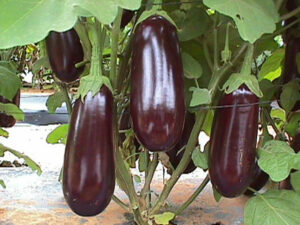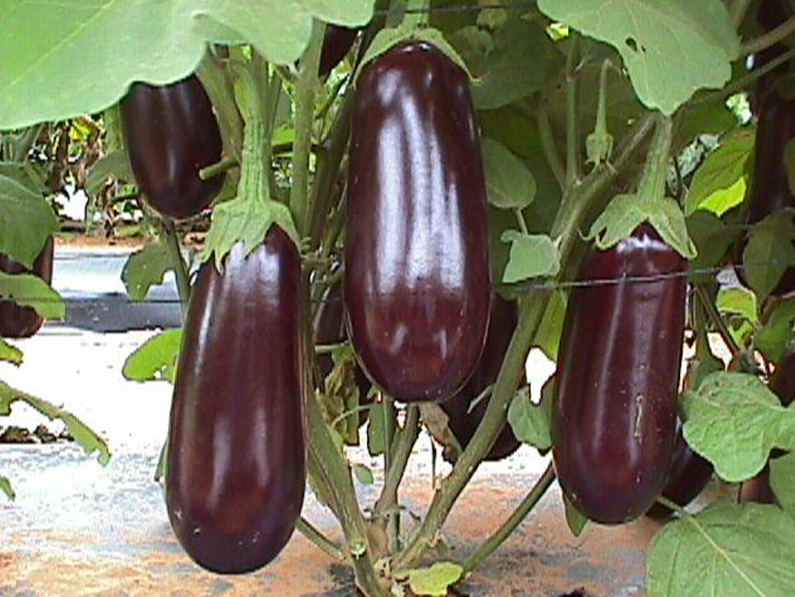
Growing and transplanting ‘Napoli’ eggplants, a variety known for its flavorful and robust fruit, involves several key steps to ensure a successful crop. Here’s a guide to help you with the process:
1. Seedling Preparation
- Start with healthy ‘Napoli’ eggplant seedlings. They should be about 6-8 weeks old with at least 3-4 true leaves.
- Gradually acclimatize the seedlings to outdoor conditions over a week (hardening off) if they were grown indoors.
2. Optimal Transplanting Time
- Transplant after the last frost when soil temperatures are consistently above 55°F (13°C). Eggplants are warm-weather plants and sensitive to cold.
3. Soil Preparation
- ‘Napoli’ eggplants thrive in well-drained, fertile soil with a pH between 5.5 and 6.8.
- Enrich the soil with compost or well-rotted manure before transplanting.
4. Transplanting
- Space the plants about 24-30 inches (60-75 cm) apart in rows that are 30-36 inches (75-90 cm) apart.
- Plant the seedlings at the same depth they were in their containers.
- Water thoroughly after transplanting to settle the soil.
5. Watering and Care
- Maintain consistent soil moisture. Eggplants need regular watering, but avoid waterlogging.
- Mulching can help retain soil moisture and control weeds.
6. Fertilization
- Apply a balanced, all-purpose fertilizer after transplanting.
- Side-dress with a nitrogen-rich fertilizer when the first fruits are about the size of a quarter.
7. Support and Pruning
- Provide support with stakes or cages to keep the plants upright and the fruit off the ground.
- Prune any excess growth to encourage air circulation and fruit development.
8. Pest and Disease Management
- Watch for pests like flea beetles, aphids, and spider mites.
- Employ appropriate pest control strategies and maintain good garden hygiene.
9. Pollination
- Eggplants are self-pollinating, but gently shaking the plants can help improve pollination and fruit set.
10. Harvesting
- Harvest ‘Napoli’ eggplants when they are firm and glossy, and the skin color is deep and uniform.
- Use a sharp knife or pruning shears, leaving a short piece of stem attached.
11. Post-Harvest Care
- After harvesting, remove any old or diseased plant material to keep the garden clean.
Growing ‘Napoli’ eggplants can be quite rewarding, given their unique flavor and texture. For local growing conditions and potential issues, it’s recommended to consult with local agricultural experts or an extension service.





Reviews
There are no reviews yet.